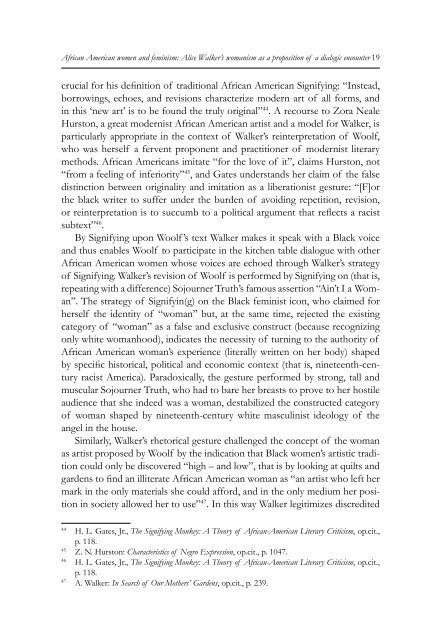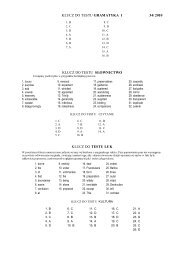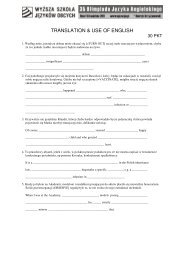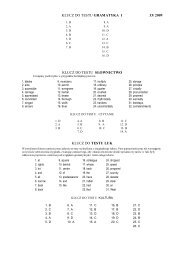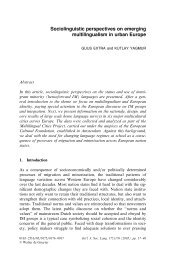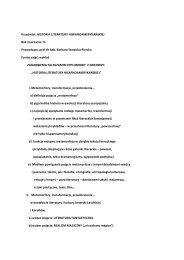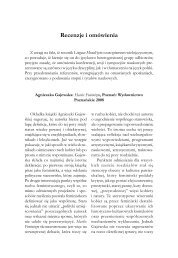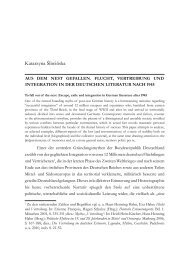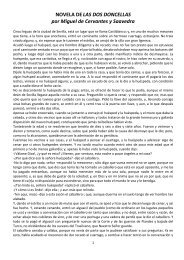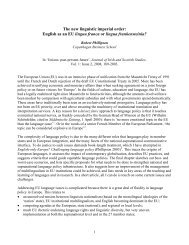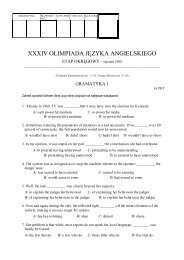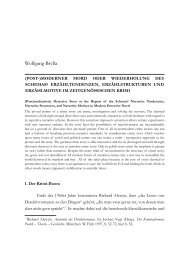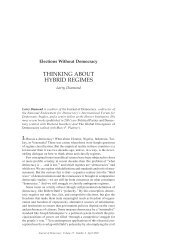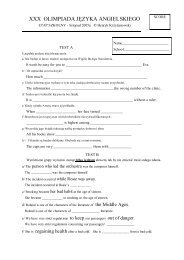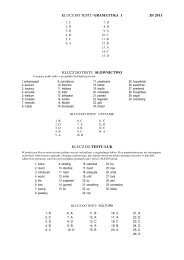African American women and feminism: Alice Walker's womanism ...
African American women and feminism: Alice Walker's womanism ...
African American women and feminism: Alice Walker's womanism ...
You also want an ePaper? Increase the reach of your titles
YUMPU automatically turns print PDFs into web optimized ePapers that Google loves.
<strong>African</strong> <strong>American</strong> <strong>women</strong> <strong>and</strong> <strong>feminism</strong>: <strong>Alice</strong> Walker’s <strong>womanism</strong> as a proposition of a dialogic encounter 19<br />
crucial for his definition of traditional <strong>African</strong> <strong>American</strong> Signifying: “Instead,<br />
borrowings, echoes, <strong>and</strong> revisions characterize modern art of all forms, <strong>and</strong><br />
in this ‘new art’ is to be found the truly original” 44 . A recourse to Zora Neale<br />
Hurston, a great modernist <strong>African</strong> <strong>American</strong> artist <strong>and</strong> a model for Walker, is<br />
particularly appropriate in the context of Walker’s reinterpretation of Woolf,<br />
who was herself a fervent proponent <strong>and</strong> practitioner of modernist literary<br />
methods. <strong>African</strong> <strong>American</strong>s imitate “for the love of it”, claims Hurston, not<br />
“from a feeling of inferiority” 45 , <strong>and</strong> Gates underst<strong>and</strong>s her claim of the false<br />
distinction between originality <strong>and</strong> imitation as a liberationist gesture: “[F]or<br />
the black writer to suffer under the burden of avoiding repetition, revision,<br />
or reinterpretation is to succumb to a political argument that reflects a racist<br />
subtext” 46 .<br />
By Signifying upon Woolf ’s text Walker makes it speak with a Black voice<br />
<strong>and</strong> thus enables Woolf to participate in the kitchen table dialogue with other<br />
<strong>African</strong> <strong>American</strong> <strong>women</strong> whose voices are echoed through Walker’s strategy<br />
of Signifying. Walker’s revision of Woolf is performed by Signifying on (that is,<br />
repeating with a difference) Sojourner Truth’s famous assertion “Ain’t I a Woman”.<br />
The strategy of Signifyin(g) on the Black feminist icon, who claimed for<br />
herself the identity of “woman” but, at the same time, rejected the existing<br />
category of “woman” as a false <strong>and</strong> exclusive construct (because recognizing<br />
only white womanhood), indicates the necessity of turning to the authority of<br />
<strong>African</strong> <strong>American</strong> woman’s experience (literally written on her body) shaped<br />
by specific historical, political <strong>and</strong> economic context (that is, nineteenth-century<br />
racist America). Paradoxically, the gesture performed by strong, tall <strong>and</strong><br />
muscular Sojourner Truth, who had to bare her breasts to prove to her hostile<br />
audience that she indeed was a woman, destabilized the constructed category<br />
of woman shaped by nineteenth-century white masculinist ideology of the<br />
angel in the house.<br />
Similarly, Walker’s rhetorical gesture challenged the concept of the woman<br />
as artist proposed by Woolf by the indication that Black <strong>women</strong>’s artistic tradition<br />
could only be discovered “high – <strong>and</strong> low”, that is by looking at quilts <strong>and</strong><br />
gardens to find an illiterate <strong>African</strong> <strong>American</strong> woman as “an artist who left her<br />
mark in the only materials she could afford, <strong>and</strong> in the only medium her position<br />
in society allowed her to use” 47 . In this way Walker legitimizes discredited<br />
44<br />
H. L. Gates, Jr., The Signifying Monkey: A Theory of <strong>African</strong>-<strong>American</strong> Literary Criticism, op.cit.,<br />
p. 118.<br />
45<br />
Z. N. Hurston: Characteristics of Negro Expression, op.cit., p. 1047.<br />
46<br />
H. L. Gates, Jr., The Signifying Monkey: A Theory of <strong>African</strong>-<strong>American</strong> Literary Criticism, op.cit.,<br />
p. 118.<br />
47<br />
A. Walker: In Search of Our Mothers’ Gardens, op.cit., p. 239.


